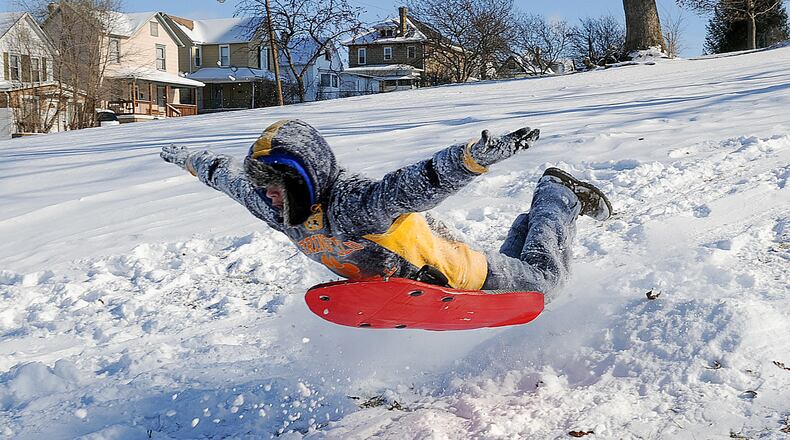Frostbitten skin will become warm and swollen and feel as though it’s on fire. Blisters may develop, but popping them can cause scarring, according to the National Weather Service. If skin is blue or gray, very swollen, blistered or feels hard and numb, go to the hospital immediately.
Frostbite stages:
- First degree: ice crystals forming on your skin
- Second degree: your skin begins to feel warm, even though it is not yet defrosted
- Third degree: your skin turns red, pale, or white
- Fourth degree: pain lasts for more than a few hours, and you may see dark blue or black areas under the skin. See a doctor immediately if these symptoms arise. Gangrene is a real threat
Hypothermia occurs when a person's body temperature is below 96 degrees, and temperatures as low as 60 degrees can cause hypothermia if someone isn't properly clothed.
Remember these tips to help prevent hypothermia
- Dress in layers
- Always wrap up well when going outside in the cold.
- Set your thermostat to at least a toasty 70 degrees during cold weather.
- Avoid extensive exposure to breezes and drafts.
- Keep plenty of nutritious food and warm clothes and blankets on hand to help ward off the winter chill. You'd also be wise to wear a warm hat during these months.
- Eat hot foods and drink warm drinks several times during the day.
- Ask a family member or neighbor to check on you often.
- Ask your doctor if any medicine you’re taking increases your risk of hypothermia. Some drugs make it difficult for your body to stay warm. Drugs that may cause a problem include barbiturates, benzodiazepines, chlorpromazine, reserpine, and tricyclic antidepressants.
